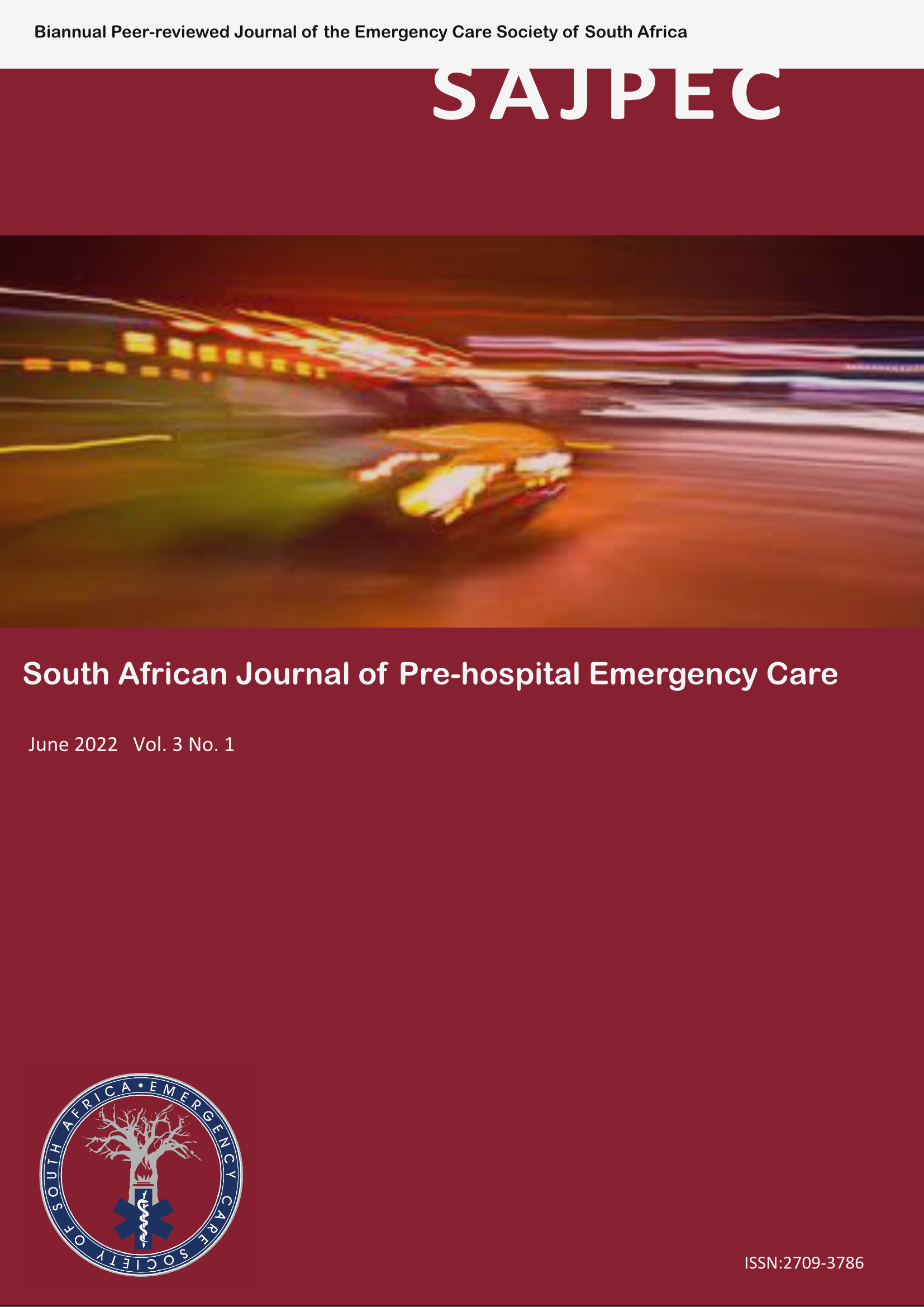An Investigation into employees’ motivation during the COVID-19 pandemic, at a single private Emergency Medical Services provider in Gauteng
DOI:
https://doi.org/10.24213/3-1-5121Abstract
Background: Employee motivation has been identified as pivotal in every organisation, as it assists in the realisation of organisations’ vision and/or mission. The COVID-19 pandemic has had an unprecedented effect across the globe, which extended into personal and professional realms. It may be argued, though, that it had a compounding effect on healthcare providers. Despite healthcare organisations having a COVID-19 disaster response plan in place, the relationship between employees’ motivation and organisational performance has been poorly described. The aim of this research was to investigate and describe factors of motivation amongst emergency operations centre (EOC) employees during the COVID-19 pandemic at a single private emergency medical services (EMS) provider in Gauteng.
Methods: The sample included 110 EOC employees, and a probabilistic stratified sampling methodology was utilised. An electronic survey instrument was used to collect data. All recorded data were stored on Google® forms and extracted into an electronic data spreadsheet for analysis (Microsoft® Excel®).
Results: A total of 87 participants responded, yielding a 95% confidence interval. The majority of participants were between 25-35 years old (n=53), female (n=53), single (n=43), and had a higher certificate as their highest formal qualification (n=60). It was found that organisational reputation (87.4%), the sense of making a difference (87.4%), and job security (85.1%) were amongst the most prevalent motivational factors amongst EOC employees during the pandemic.
Conclusion: The results outline the importance of motivation in a disaster response plan. Employees’ motivation should be prioritised and adequately managed in times of crisis. Based on the link between motivation and organisational performance, a failure to do so may have a negative impact on performance. Organisational reputation, the sense of making a difference, and job security were identified as key motivational factors.
Downloads
Downloads
Published
Issue
Section
License
Authors grant the Emergency Care Society of South Africa the exclusive right to publish, display, reproduce and/or distribute the work in print and electronic format and in any medium known or hereafter developed, including for commercial use. Authors also agree that the Emergency Care Society of South Africa may retain in print or electronic format more than one copy of the work for the purpose of preservation, security and back-up.


